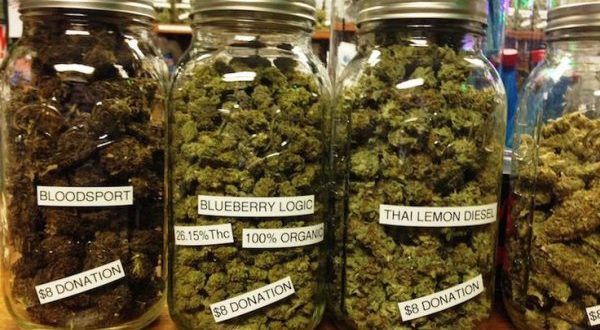#2- The Cannabis Control Commission must make license applications available by April 1,2018
Shortly after posting regulations in March 2018, the Cannabis Control Commission will be required to make licensing applications available. This will give the commission and investors about three months time to oversee application approvals and begin setting up shops. Citizens will be required to pay a $3,000 initial application fee in addition to a fee corresponding to the license desired. Retail, manufacturing, and cultivation licenses will cost $15,000, and testing licenses will cost $10,000. Initial investment costs could cost upwards of $20,000 per license. (http://www.mass.gov/treasury/marijuana/frequently-asked-questions.html)
#3- More towns must allow recreational cannabis sales
Over the past year, several Massachusetts municipalities have fought hard to keep recreational cannabis businesses from popping up. This past September, Milford Massachusetts voted to ban recreational weed shops, even though 52% of voters agreed to legalize recreational weed in 2016. (http://www.wbur.org/news/2017/09/20/milford-voters-ban-marijuana-stores)
This news also came despite Massachusetts cannabis company Sage Naturals having an agricultural facility in the city at the time of the vote. While this is an issue that other states have faced during recreational legalization, the reality for those of us in Massachusetts is that fewer shops means a smaller market. There are about a dozen cannabis shops in Massachusetts currently; many people have to make specific arrangements to even make it to a medical cannabis facility.
Leafly.com contributor Andrew Livingston summed up the importance of access points well, stating “Too few dispensaries and a market simply stagnates. In Massachusetts, despite an inclusive set of qualifying conditions and an embrace of other factors needed to be successful (such as smoke-able flower), the medical market has had trouble attracting patients because there are currently only a dozen dispensaries. That’s about one dispensary per 560,000 state residents. And until recently, none offered delivery services to more remote regions of the state.”
If people in Massachusetts do not have efficient access to recreational weed shops, then they will likely stick to buying weed on the streets. This will hinder the legal market’s ability to grow, while contributing to the growth of the illegal weed market.
 New Bedford Guide Your Guide to New Bedford and South Coast, MA
New Bedford Guide Your Guide to New Bedford and South Coast, MA








